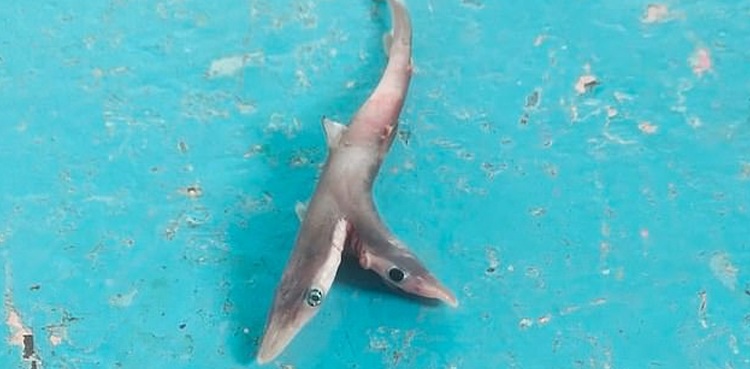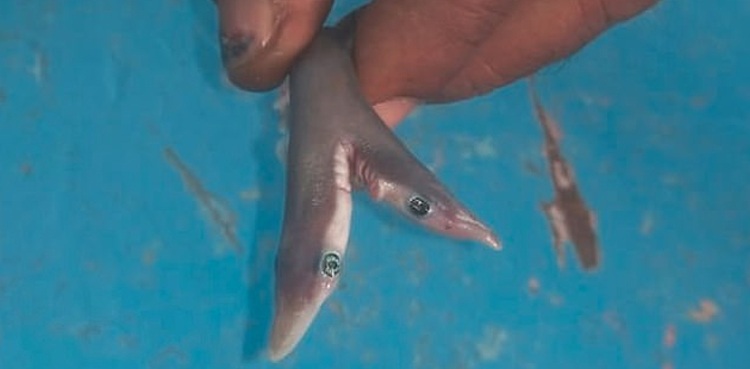Mutant two-headed shark discovered by fisherman
- By Web Desk -
- Oct 16, 2020

A newborn two-headed shark shocked the Indian fisherman for his life after he found it among his catch the past week.
He spotted the rare six-inch-long twin-headed mutant fish, now identified as spadenose shark, on his fish expedition earlier this month.
Nitin Patil dragged up the two-headed mutant fish, still alive, while he was fishing the waters off Maharashtra in western India.

Since he did not know how rare this creature is, Patil, from a village in Maharashtra, took a few pictures, then threw it back into the sea. However, his pictures, when posted online, sent ripples across the marine biologist communities across the world.
According to the reports by marine authorities in the country, there have only been two reports such a creature has been found in India.

Talking to local media after his posts made news, Patil said, “We do not eat such small fish, especially sharks, so I thought it was strange but decided to throw it anyway.”
Although, it did not take him long after his posts just how unusual a catch this double-headed mutant was.
READ VIDEO: ‘Three suns’ appear in sky due to rare natural phenomenon
Another fisherman from the similar coast, Umesh Palekar, asserted, “We have never seen anything like this before.”
“We believe one of the larger sharks may have given birth to this double-headed shark baby.”
Scientists believe a variety of factors could have led to the shark, which was a spadenose shark (Scoliodon laticaudus), having this mutation.
“It’s a rare report for India,” one of them said.
“These finds are so rare that it is difficult to find a cause for the anomaly’ said marine biologist Swapnil Tandel”.
